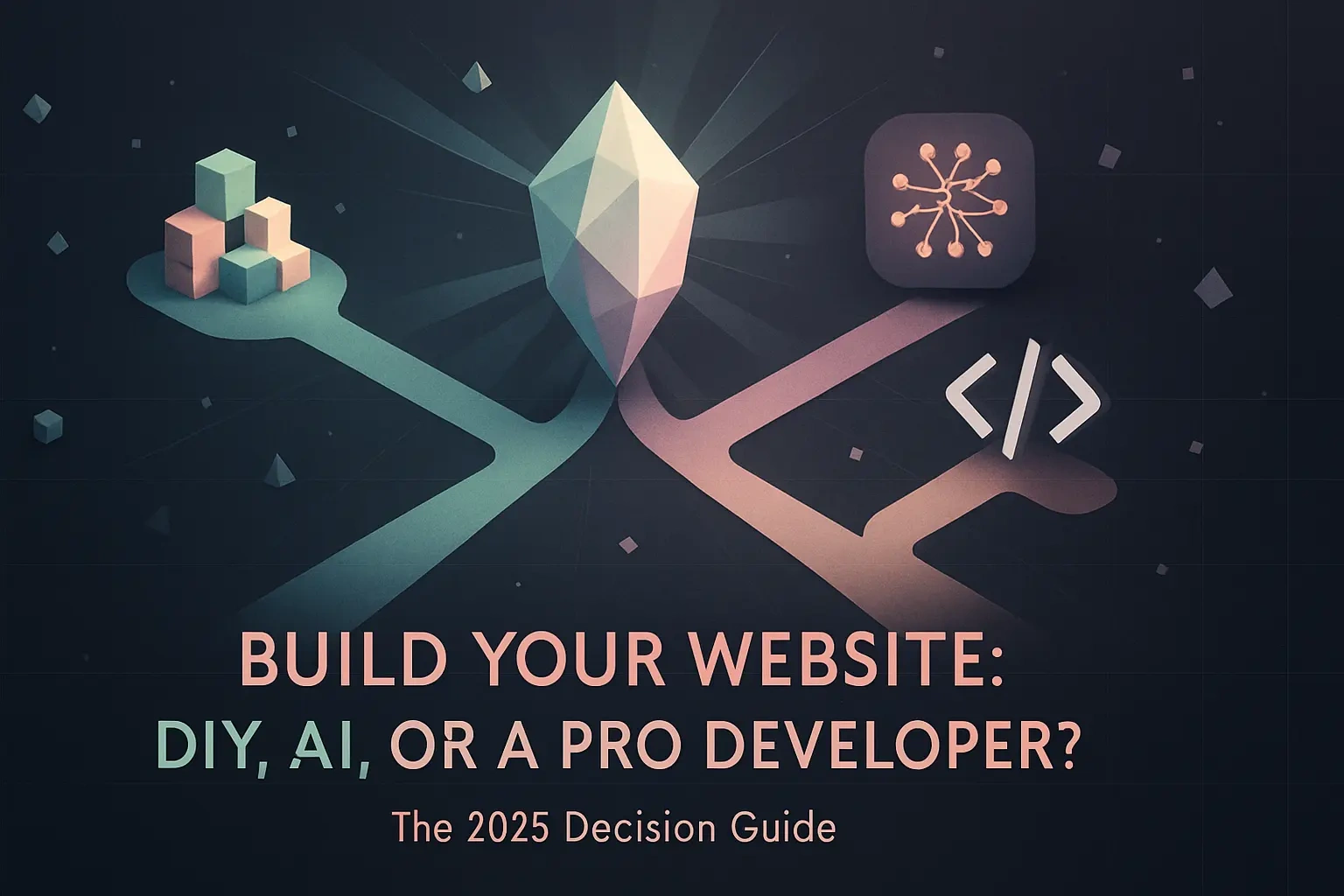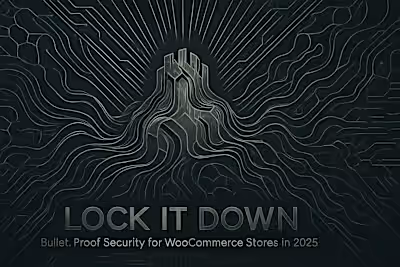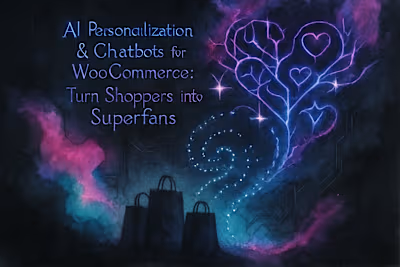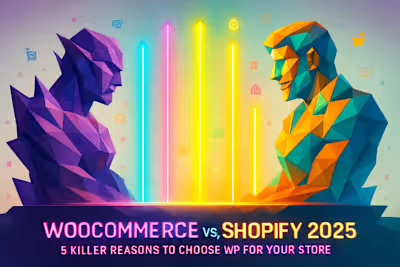Build Your Website: DIY, AI, or a Pro Developer? The 2025 Decision Guide

Build Your Website: DIY, AI, or a Pro Developer? The 2025 Decision Guide
The DIY Route: Are You Up for the Challenge?
Pros: Cost Savings and Full Control
Cons: Time-Consuming and Potential for Errors
Essential Tools for the DIYer
The Rise of AI: Can a Robot Build Your Dream Site?
Pros: Speed and Initial Design
Cons: Lack of Customization and Originality
AI vs. Human Developer: What's the Difference?
Hiring a Professional: The Path to a Custom Solution
Pros: Expertise, Quality, and Efficiency
Cons: Higher Initial Cost
Finding the Right Developer
A Side-by-Side Comparison: Cost, Time, and Quality
Cost Breakdown
Time Investment
Expected Quality and Scalability
Which Path is Right for You?
References
Build Your Website: DIY, AI, or a Pro Developer? The 2025 Decision Guide
The DIY Route: Are You Up for the Challenge?
Pros: Cost Savings and Full Control
Cons: Time-Consuming and Potential for Errors
Essential Tools for the DIYer
The Rise of AI: Can a Robot Build Your Dream Site?
Pros: Speed and Initial Design
Cons: Lack of Customization and Originality
AI vs. Human Developer: What's the Difference?
Hiring a Professional: The Path to a Custom Solution
Pros: Expertise, Quality, and Efficiency
Cons: Higher Initial Cost
Finding the Right Developer
A Side-by-Side Comparison: Cost, Time, and Quality
Cost Breakdown
Time Investment
Expected Quality and Scalability
Which Path is Right for You?
References
Posted Jul 6, 2025
Should you build your own website, use an AI builder, or hire a professional? We break down the costs, time commitment, and outcomes for each option to help you decide.










